Little knowledge about “the Americans” in Iraq
A US-Arab-European coalition has been fighting the terrorist organization “Islamic State” in Syria and Iraq for seven years. Most Germans hardly know this coalition or its purpose and there is therefore no real public opinion about it. Not least because the Germans aren't even involved and don't help finance it. Through this operation, terrorists were and are prevented from coming to Europe. The US is far less at risk, but accounts for 80% of the effort and pays for a significant portion of it.
In the past few weeks I have spoken to numerous security forces deployed in Kurdistan Iraq. From ordinary Kurdish soldiers to Western generals. And I have experienced a lot. From relaxed conversations in the café to rocket strikes. It is not that easy to adequately summarize the situation because the fronts and coalitions are constantly shifting.
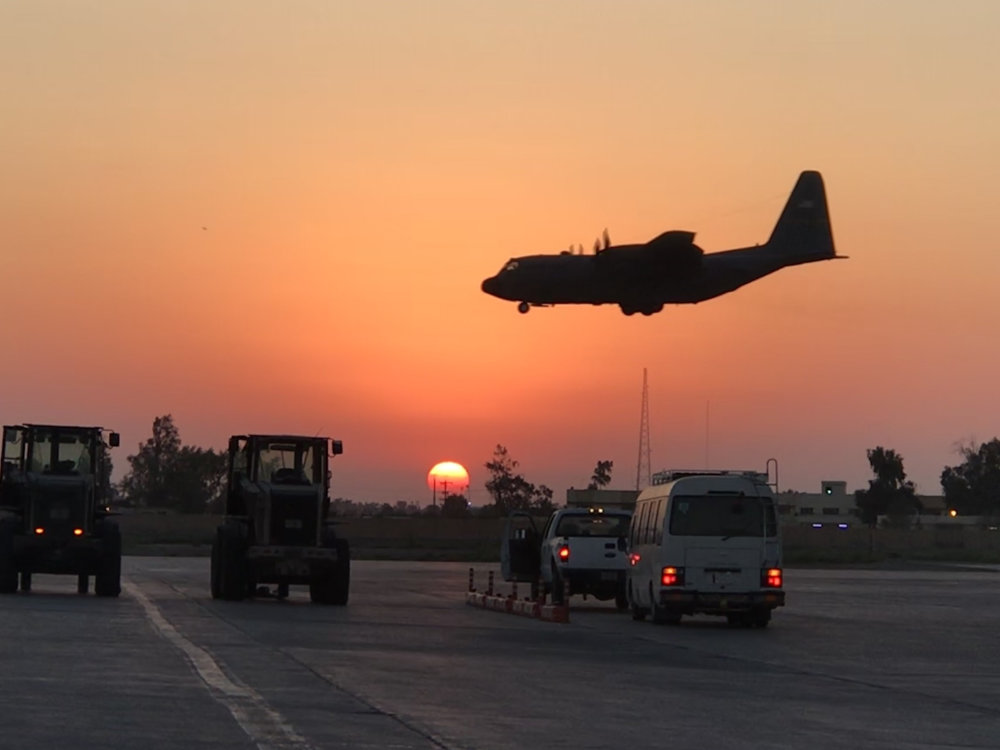
Who is part of Operation OIR?
“Hey, I’m in Erbil too, would you like to come over?” – a general who is currently part of the Combined Joint Task Force – Operation Inherent Resolve, or OIR for short, asks me. This is a coalition that was formed in 2014 to fight the terrorist organization Islamic State (IS). The operation is made up of forces from the USA, Canada, Great Britain, France, the Netherlands, Denmark, Belgium, Turkey, Saudi Arabia, the United Arab Emirates and Jordan, as well as local partners from the Kurdish Peshmerga, the Iraqi Army and also the Syrians Democratic Forces, which are led by the Kurdish YPG. Locally they are called “the coalition”, in Germany they are often simply called “the Americans”. There is a Bundeswehr mission over Syria and in Iraq and Jordan, which includes up to 500 soldiers. However, its mandate does not include the direct fight against terrorists. The training takes place as part of the OIR and the parallel “NATO Mission in Iraq” (NMI). The Bundeswehr conducts air traffic surveillance from Iraq and refuels fighter jets in the air.
There are enough problems even between those involved in the OIR. At the end of 2017, the Iraqi army attacked the Peshmerga, i.e. the Kurdish army, in northern Iraq. The Turkish army in turn attacked the YPG in Syria. The Peshmerga and the Turkish army, on the other hand, get along.
Opposite them is the terrorist organization Islamic State, which kept the world in suspense from 2014 to 2016 and which was then almost forgotten in Europe. Up to eight million people lived among the terrorists on 110 million square kilometers, almost the size of the Federal Republic. Countless people were killed or are considered missing, the rest were liberated and the territory was recaptured militarily.
Wasn't ISIS defeated?
“People think that IS has been defeated and ask us what we are doing with almost 3.000 soldiers here. “You think there’s one on every corner here,” the general explains to me. It's true that IS has almost no significance anymore, but it has the potential to become big again and again. If you look at them Crisis map LiveUA Map, you can find attacks by IS almost every day. And around 3.000 soldiers sounds like a lot, but in practice it is little. Divided into shifts, weekends and holidays are deducted, there are significantly fewer than 1.000 left who are on duty at the same time. As a rule of thumb, you need 100 soldiers (from pilots to kitchen assistants) to operate a fighter jet.
Many of the soldiers here used to be specialists. They had an area of responsibility that they constantly served. They had no other tasks than those assigned to them. You can no longer afford that luxury with such a slimmed-down team. Everyone here has multiple qualifications. Even medical staff must be able to cover a wide range. The British and Americans in particular don't like to see this, but they have become more and more used to it.
Coalition airbase in Erbil

One of the largest locations is currently the Kurdish capital Erbil in northern Iraq. This is where the self-governing Autonomous Region of Kurdistan lies, which has its own army, the Peshmerga. Directly adjacent to the international airport is the US airbase, which is now more than ten times larger than the civilian airport. As far as the eye can see there are armored vehicles, combat and transport helicopters, transport aircraft, reconnaissance aircraft of all sizes and drones. In the middle, an area is being cleaned. Here is the past one A rocket for the first time on Monday of the Shiite militias controlled by Iran.
A large part of the work here revolves around obtaining and evaluating information. The small Beechcraft spy planes do their rounds around the clock, picking up communications from the ground and watching everything very closely. The helicopters primarily bring troops and their supplies to Syria and other areas of Kurdistan. Even if you want to get by with a small number of staff here, a lot of people have to work in administration: warehouse management, laundry, kitchen, mail room, fleet management, mechanics for all devices, trainers, contact officers and of course you also need time to talk to people like me .
Research from a distance
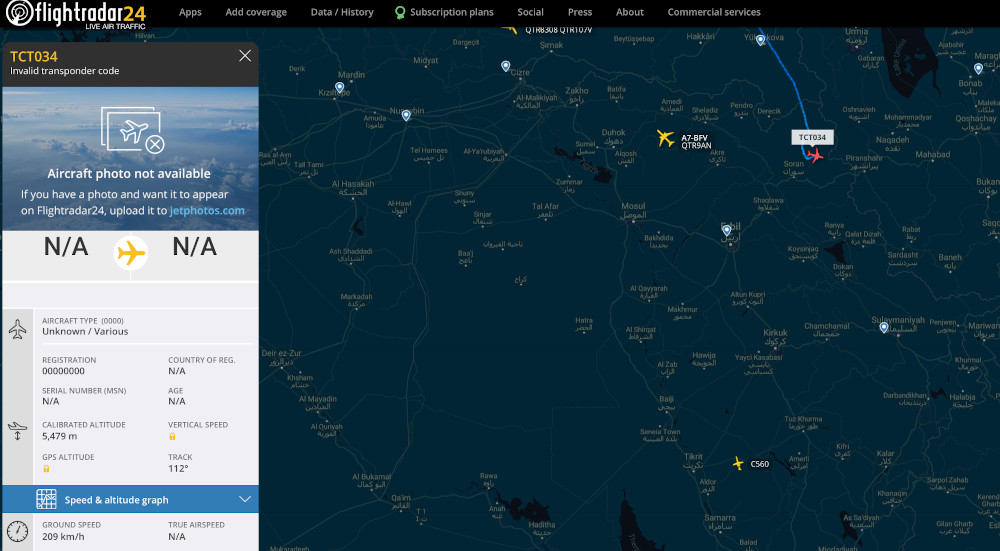
It is always difficult to assess the local situation from a distance. You only receive the official answers; no one wants to comment unofficially. Not even in private chat or by phone. The fear that the other person might record something is too great. With public sources like the LiveUA Map or aircraft tracking FlightRadar24 you can get an idea of the situation, but nothing more. Military aircraft in particular are voluntarily filtered by services such as flight radar. It is easy to pick up the publicly broadcast aircraft information using an ADS-B receiver and thus at least see the aircraft identification numbers. This equipment costs less than €100 and is the size of a paperback book.
To be present

But you have to be there for that. And most fighter jets, helicopters and drones do not send data into this public system. But the movement of the reconnaissance aircraft, transporters and tankers is also interesting. A few days ago, several large C-17 cargo planes landed one after the other. The community was concerned with the question of what was being transported to the crisis area. However, the question was quickly clarified on site and the answer was sobering: “Amazon packages, and flip-flops”. What was meant was mail from soldiers that had been piling up since Christmas due to a logistical bottleneck.
This uncertainty from afar also encourages journalists to stay on site longer and do extensive research. Building and reactivating contacts takes time. “Parachute journalists” are often used to spread urgent news, but are not really welcome. This refers to a journalist who symbolically jumps out with a parachute while flying past, runs to the airport, takes photos and interviews and is flown to the next trouble spot. If you are there longer, you will receive invitations to an evening on the couch, you can see the equipment in more detail, or you will receive subtle hints about when and where you should randomly show up.
Hardly any uniforms
I wait for my conversation partner on a large and comfortable couch with the local black tea with sugar. The general arrives with his entourage. Nobody wears a uniform, everyone speaks English, nobody salutes, everyone addresses each other by their first names. It is hardly possible to identify a hierarchy here. On the other hand, it doesn't seem to matter at the moment. The general and I know each other from previous meetings. We didn't realize that each other was in Erbil. This may sound surprising, but this kind of thing happens more often than you think. Everyone involved simply has to keep an eye on too many people from their area, and every now and then something is overlooked. His escort team consists of several nations, and the cooperation works without any problems.
The elite soldiers don't look like they do in an action movie. Athletic, but not noticeably muscular. No prizefighter statue, no uniform hairstyles, not even the same shoes. You could sit in a café in Berlin without attracting the slightest attention. The convoy in which they travel is more likely to attract attention. The vehicles are as subtle as possible. But they remain large, armored military vehicles. This means you can't move around without being seen. “It’s easier for you there,” says one of the soldiers, pointing to my Toyota SUV. Toyota Hilux, Landcruiser and Prado make up what feels like 25% of all vehicles on the road. “But we stand out either way. Then we would rather take the protection with us,” he explains further.
Iranian-Shia militias
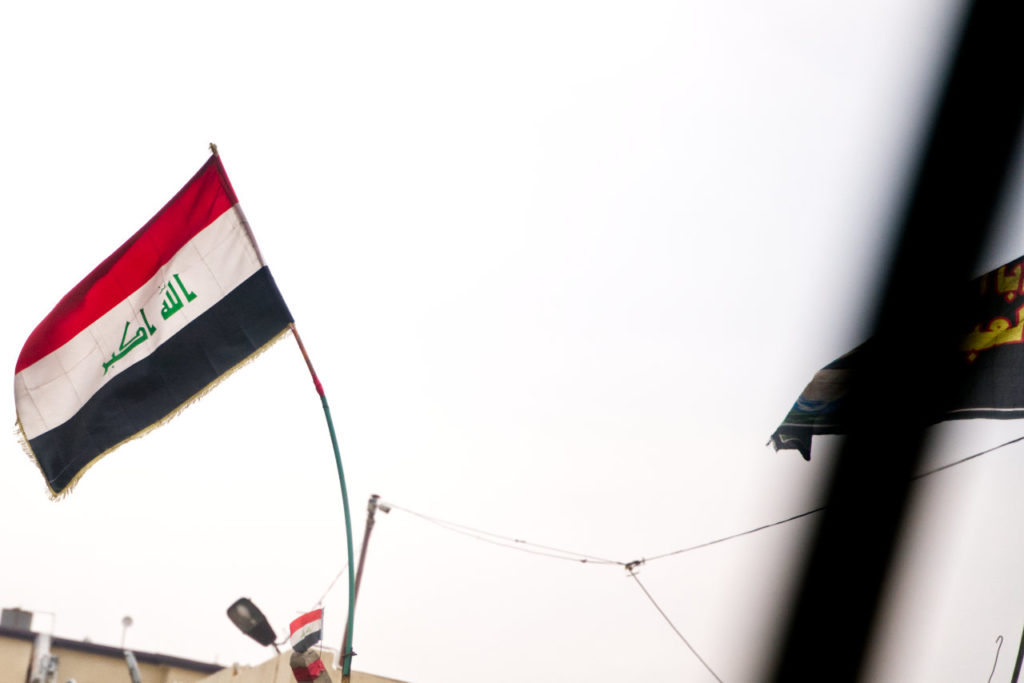
But the attack on this air base was not carried out by ISIS, but by Iran's Shiite militia network. This militia network now consists of more than 70.000 men. It is called the Popular Mobilization Forces (PMU) or Hashd al Shabii. The Iraqi state is considered weak. The government has failed to unite the people and has not enjoyed much trust for more than 100 years. Therefore, it is easier for such groups to promote themselves through strong and reliable appearances. Added to this is the support of Iran, which is popular with many Iraqis because it repeatedly clashes with the unpopular Americans. Other Iraqis are moving to the safe Kurdistan Autonomous Region or spending their holidays there. In the large, well-secured hotels you can surprisingly often meet ambassadors and their entourage who were actually supposed to be in Baghdad. They always have lavish appointments in the safety of Erbil. Sometimes for several weeks.
Iran controls the militia network, building up individual groups and dropping others. No group should become too powerful. No small warlord should become so big that he can separate himself from Iran. Qasem Soleimani, who was killed in a US air strike on January 03, 2020, was responsible for the administration and leadership of all Iranian-controlled forces abroad. But Iran also has a great influence on Iraqi politics. It is believed that a third of the level corresponding to our state secretaries is directly or indirectly controlled by Iran. The proportion of police and military over which Iran can exercise significant influence should be just as large. The Iraqi city of Mosul has been under the defacto administration of the Iranian rulers for years. I was able to see this for myself on site a year ago. Mosul has actually been inaccessible to journalists and NGOs for a long time. When the Iraqi army asked to be allowed to control the city again in 2019, the access to the city was quickly blocked with an earth wall by a bulldozer. There are no Iraqi soldiers at the checkpoint to the east of the city, but there are local Iraqi police officers in the second line who continue to carry out their duties.
The fact that these militias were able to fire their rockets at the US base from just eight kilometers away came as a shock to the security authorities. The Kurdistan Autonomous Region in northern Iraq is considered extremely safe. Even when ISIS ruled Mosul just 2014 km away from 2016 to 75, you could sit in the cafes or visit the amusement parks in Erbil.
Now the coalition is increasingly facing this enemy. Since the “Hashd” can move freely in the rest of Iraq, i.e. in the south and in the west, it is increasingly encircling Kurdistan-Iraq. In Shingal, in northwestern Iraq, several thousand men were gathered last week. Here you can they are the coalition's supply route between Iraq and Syria.
It is also suspected that the militias will soon attack individual Kurdish-Iraqi border posts - such as the city of Kirkuk, south of Erbil.
Important work?
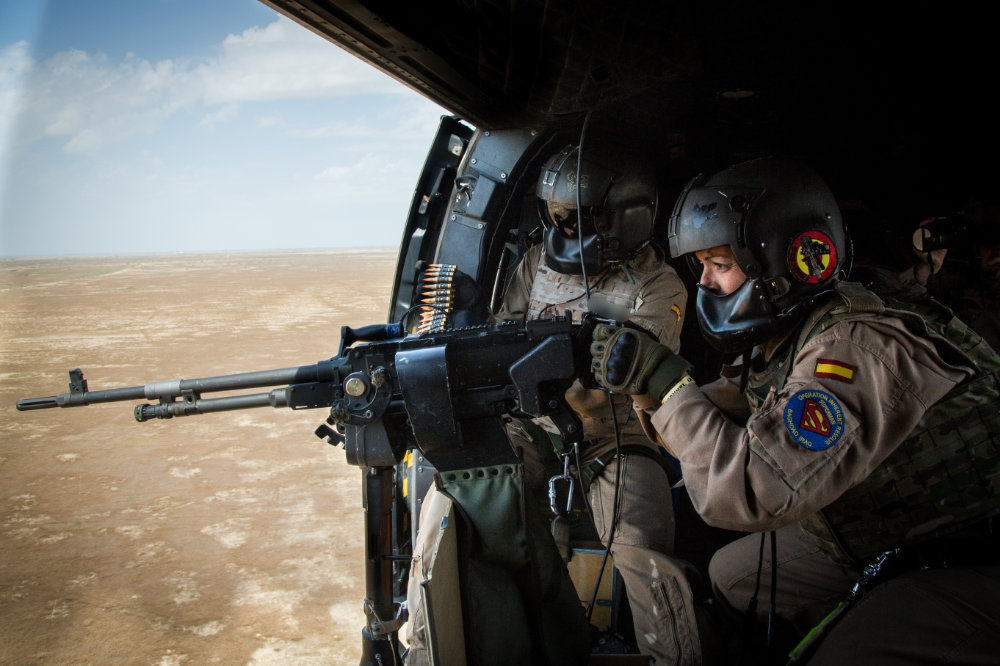
The coalition's tasks, together with the Peshmerga, are to ensure stability in the Kurdistan Autonomous Region and with the Iraqi Army in the rest of Iraq. They remained the same, but the Shiite militias were added to the previous enemy IS. The coalition trains, collects information, shares it and has now killed, depending on information, 25.000-50.000 IS terrorists. In doing so, they have done a great service to Europe, which can be reached by land. Dead terrorists can no longer set out; many alive people were caught based on the information before anything worse could happen. Terrorists repeatedly hid in the refugee trek, i.e. with the people who are fleeing from them. They later moved on to training local terrorists in Europe.
But the German authorities are cautious about praising the Allies. The Kurds openly praise the Americans, but also know that they have repeatedly abandoned them. At the moment, however, one would like to see more reaction to the attacks. A Pentagon official tells me that they are currently not interested. Starting a war with Iran over a few small missiles is disproportionate to the consequences. Another question would be who should pay for the war. The Kurds and the EU states are already primarily benefiting from the operation. But neither of them wants or can't contribute to the costs. In Germany there is also a general rejection of the US agenda. This categorical rejection sometimes leads to bizarre demands from German MPs.
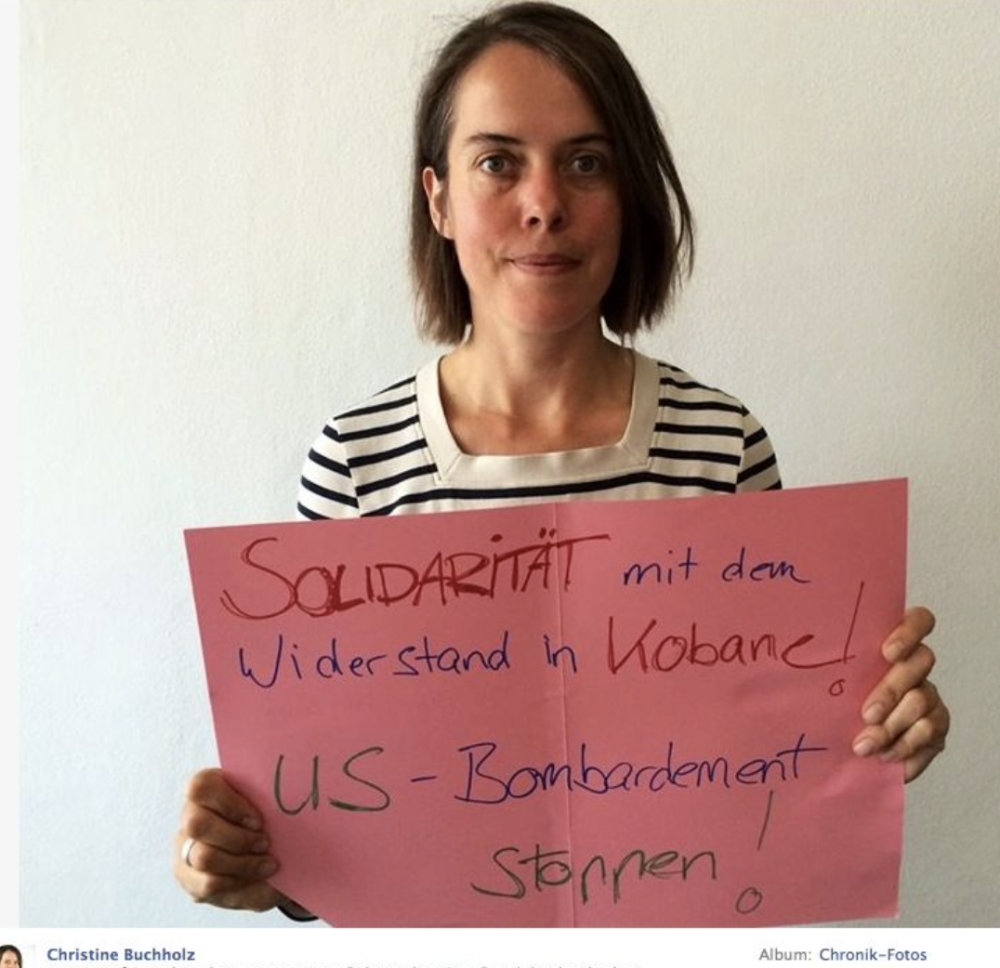
Left-wing member of the Bundestag Christine Buchholz demanded that people should show solidarity with the Kurds in Syria, but reject US support. The Kurds would have been lost in Syria as they would no longer have had any allies.
Future of the coalition
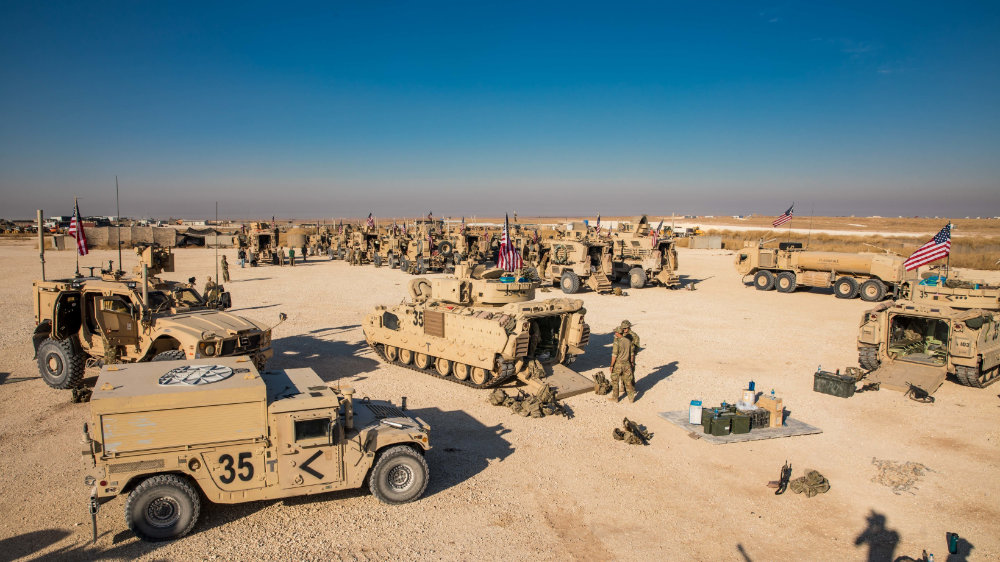
The future of the coalition is in the balance. The work is important for the international community and especially for the local Kurds. The operation on site is going well. There are no problems with the local population, you don't see any soldiers on the streets, the military convoys leave in the early hours of the morning, and the airbase doesn't disrupt everyday life. Nevertheless, the image of the operation in the West is poor or non-existent and no one wants to share in the costs. Tensions between the USA and Iran as well as the Kurdish regional government and the central government in Baghdad are at a high point. The coming weeks will show how resilient the coalition is and whether the operation will change significantly in the future. In one direction or the other.


Ein Kommentar